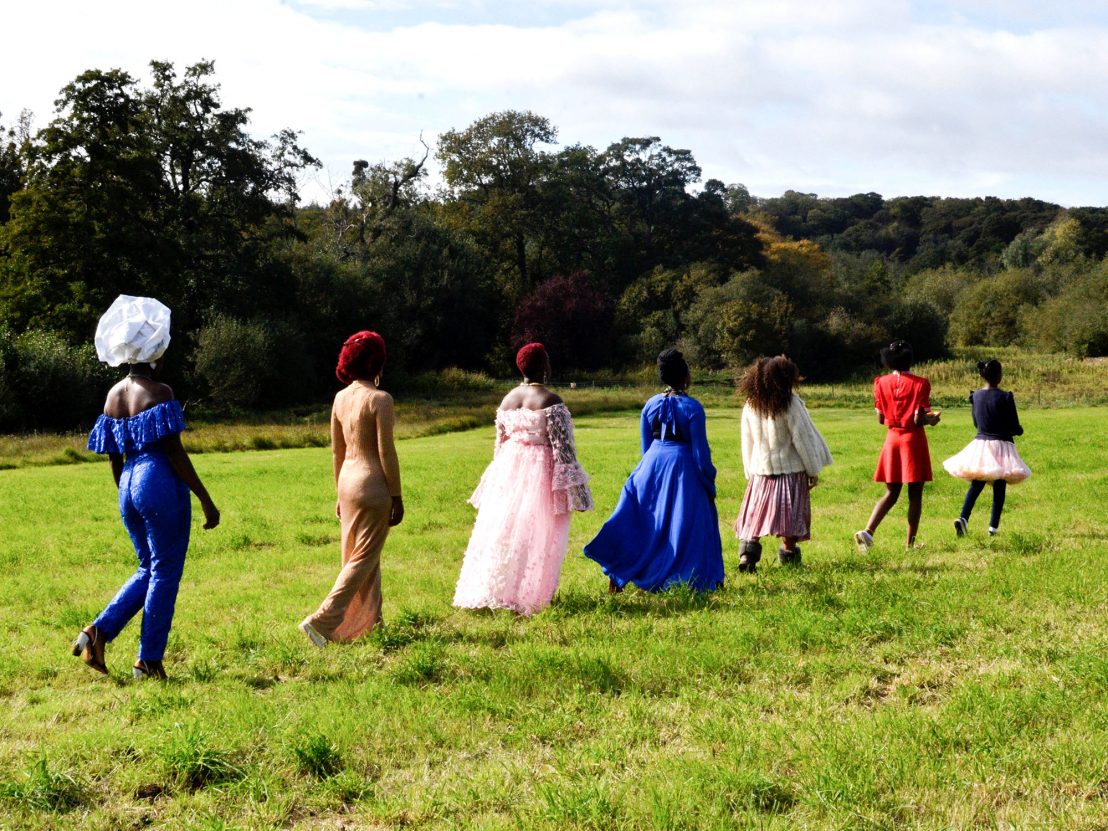
Somalia Seaton has made a name for herself as a gifted playwright, steadily crafting an impressive body of work for theatres including Stratford East, the Lyric, Soho Theatre and the Royal Shakespeare Company. Her plays offer insightful and uncompromising perspectives on race, family, identity and womanhood.
A Response to Your Message is her first foray into film, an experimental short based on a letter Seaton wrote to her white friends and colleagues who reached out to her in the wake of George Floyd’s death and the ensuing Black Lives Matter protests.
“I didn’t speak to some of my closest white friends for about three months,” says Seaton. “I was without language. I felt like the language that I had spoken to them with, or we had shared was no longer in my mouth. And so I was journaling and it turned into a letter. Then, at some point down the line, I shared it with Susie [Wokoma] and rather than reading it and then texting me back to talk to me about it she recorded herself reading it and sent it to me. There was just something so powerful about hearing it in someone else’s mouth and really painful, and the seed of this film was planted.”
In the film, images of Black women dancing, moving and relaxing are interspersed with shots of a group of Black women and girls dressed in gowns and afro-futuristic regalia in a sun-dappled woodland. “I wanted to bring Black women into nature,” Seaton explains, “to pick up the rhythm of nature and that flow of nature. To reclaim that space and have our feet in the soil and ground ourselves.” All the while, a voice narrates Seaton’s letter, addressing an unseen white friend:
“I don’t need cheering up. I don’t wish to house your guilt. I don’t wish to house your shame. I don’t wish to house your awkwardness. I don’t wish to house your fragility. I don’t wish to join your book club. I don’t wish to hear about that one time you called out a racist. I don’t wish to be introduced to your replacement token you’ve recently met. I don’t wish to house the emotional labour of our big talk. I’ve got no room for that at this moment in time.”
Much of the footage is self-recorded, with a diverse group of intergenerational Black actors, artists, dancers and performers given a broad brief to interpret. They were simply asked to engage in motion and depict “rest, peace and joy”. The power of that act feels revolutionary in a time where we are more used to seeing Black women on screen running from slave masters than practicing sun salutations. “I’m so sick of seeing specifically Black women’s bodies mutilated, abused, enduring, persevering and having resilience,” says Seaton. “I want to see women engaged in pleasure, sexually and in many other ways. We don’t talk about it enough, that there is something that happens to us culturally and physiologically when we continue to see images of ourselves engaged in that duress.”
There is a renewed power to Seaton’s message following the recent election of Joe Biden and Kamala Harris. Black women mobilised, turning out in record numbers, and the media acknowledged their hard work as many well-meaning liberals expressed their gratitude that Black women had ‘saved’ them. For all that this may be true and worth acknowledging, it also further reinforces the idea of Black women as brutalised beasts of burden working for a collective self-interest rather than towards their own goals.
“The idea that we’re supposed to sustain and persevere, it makes me so angry,” says Seaton. “You’re just supposed to endure culturally as well as in wider society. You’re supposed to house the shortcomings of men and you’re supposed to house the shortcomings of white people. You’re supposed to be really humble. You’re not supposed to be too angry. That goes somewhere. It costs us. It costs us in complete physiological health. And I’m so sick of it as a lesson that we teach young Black girls, to just work hard. Really, the code for Black women when we talk about working hard and is ‘overexert yourself”.”
A Response to Your Message comes as a balm in a year where Black women have had to deal with their vulnerability to the pandemic and white supremacy, their lack of inclusion in politics and culture and being, to paraphrase Malcolm X, the most disrespected, unprotected and neglected people of all.
A year where we are bombarded with images of violence against Black bodies, where Janelle Monáe is raped and tortured for Antebellum’s self-proclaimed satirical purposes and Black politicians like Diane Abbott, Dawn Butler, Kamala Harris and Stacey Abrams are treated with open contempt across social and mainstream media.
A year where Black trans women were murdered in record numbers while so-called ‘feminist’ icons and columnists in purportedly progressive newspapers dehumanised them and debated their right to exist. Most of all, it serves as a reminder to us all of the power of sanctuary and the importance of savouring the joy of existing within your own skin.
Watch A Response to Your Message below and find out more at aresponsefilm.com
Published 1 Dec 2020

Octavia Spencer is on scintillating form in this four-part dramatisation of the life of haircare pioneer Madam CJ Walker.

How a handful of filmmakers and a simple hashtag turned stories of African-American oppression into a national concern.

By Aaron Hunt
With the restoration of this long-lost documentary, a vital record of Black resilience has been preserved.